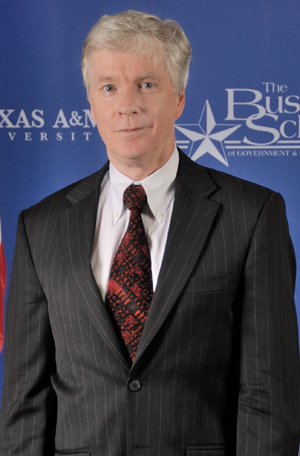New BU Institute on Iraq Launches Today
Former U.S. Ambassador Ryan Crocker to speak

With the last American troops in Iraq exiting next year and security already improved, opportunities for safe, scholarly research there may multiply, according to educators. The new BU Institute for Iraqi Studies, which debuts today, hopes to create academic links to the troubled nation.
Ryan Crocker, the U.S. ambassador to Iraq from 2007 to 2009 and a pivotal player in the war, gives the institute’s first lecture, Iraq: The Next 10 Years this evening, November 17, at the Metcalf Trustee Center. Crocker, a career diplomat before becoming dean and executive professor at Texas A&M’s George Bush School of Government and Public Service, worked closely with General David Petraeus on the 2007 troop surge that helped quell violence in Iraq.
“The establishment of the institute is a tremendously important initiative,” Crocker says. Referring to a speech in which President Obama declared troop withdrawals a commitment to “turn the page” on Iraq, Crocker says he’s “concerned Americans read that as not just turning a page, but closing the book on Iraq,” showering indifference on “a country of vital strategic importance to the region and the United States.”
The institute will work to keep attention focused on Iraq and also “is going to be a vehicle, I think, to coordinate academic travel to Iraq,” he says.
Among its activities, the institute will bring Iraqi fellows to BU for a semester or a year, addressing Iraq’s concern that few of its young professors “have been exposed to the setting of a world-class university,” says the institute’s founding director, Augustus R. Norton, a College of Arts & Sciences professor of international relations and of anthropology. Crocker’s lecture is the first in what is planned as an annual series, and the institute will run periodic workshops and conferences as well. It also will offer PhD research fellowships in the humanities and social sciences, open to any BU doctoral student researching contemporary Iraq. Norton says the institute will begin soliciting applications in 2012.
Because of Saddam Hussein’s repressive Baath Party regime and then the war deposing it, scholars were denied safe access to Iraq for years, Norton says. While lingering disorder from the U.S. invasion still makes work risky, “sites that have long been closed to foreign researchers are now becoming accessible.” Indeed, the idea for the institute came to Norton during a research trip to Iraq last fall, when he found keen interest in BU’s academic reputation among Iraqi educators.
The institute’s mission is to “encourage scholarly collaboration between Iraqi scholars and BU counterparts and to help shape the scholarly agenda on Iraq, he says. Crocker recalls that as ambassador, during his talks with Iraqi educators, they were, “without exception, desirous of links with U.S. universities.”
The institute has secured five years of funding from the Independent Development Council in Iraq, a quasi-governmental agency supporting community and human development projects, most of them in Iraq. Having the agency support a United States–based venture “is a unique situation,” says Norton.
A five-time ambassador to the Middle East (Iraq, Pakistan, Syria, Kuwait, and Lebanon) during four decades in the Foreign Service, Crocker has won numerous awards, including America’s highest civilian honor, the Presidential Medal of Freedom. He was educated at Whitman College in his home state of Washington.
Following eight months of disagreement and paralysis, Iraqi leaders this month agreed to form a government under Prime Minister Nuri Kamal al-Maliki. Crocker says that in his talk he will offer a mixed assessment of the nation’s prospects.
“There are enormous challenges that Iraq faces,” he says. “The good news is that, so far, they are solving political problems with political means, without resorting to the violence we saw in 2006 and 2007.”
“I don’t know how it’s going to go. That part of the book has yet to be written. I think it will have a considerable amount to do with how engaged we stay, and I think that’s another reason why this institute is important.”
Ryan Crocker’s talk, Iraq: The Next 10 Years, the inaugural lecture of the new institute, is today, November 17, at 5 p.m. in the Metcalf Trustee Center, ninth floor, One Silber Way. The event is free and open to the public. The Institute for Iraqi Studies will be housed in the existing Institute for the Study of Muslim Societies and Civilizations, 232 Bay State Rd.
Rich Barlow can be reached at barlowr@bu.edu.

Comments & Discussion
Boston University moderates comments to facilitate an informed, substantive, civil conversation. Abusive, profane, self-promotional, misleading, incoherent or off-topic comments will be rejected. Moderators are staffed during regular business hours (EST) and can only accept comments written in English. Statistics or facts must include a citation or a link to the citation.